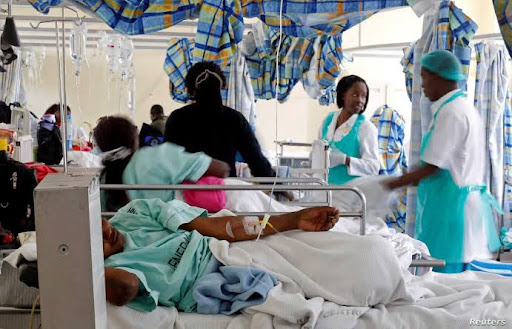WaterAid Expresses Concerns Over Cholera Outbreak In Nigeria
Claiming over 3,000 lives so far in Nigeria, the organisation warns that climate change will drive up numbers leading to more contamination and deaths.

WaterAid, a water charity organisation has expressed worries over cholera outbreak affecting communities in several states in Nigeria.
The charity organisation in a press release said young children between the age of five and 14 are mostly affected and so far, over 3,000 lives have been claimed by the disease, which it predicts to be higher due to hard-to-reach areas that have not been included.
Evelyn Mere, Country Director of WaterAid in Nigeria said the recent outbreak has been the most lethal one in several years, considering the number of cases and deaths recorded so far.
“It shows how important clean water and good sanitation and hygiene are to saving lives. Even though the rainy season is coming to an end, the outbreak is ongoing,” Mere said.
However, the organisation fears that the global climate crisis is likely to lead to more unpredictable rains and river floods, as there will be a higher risk of floods contaminating clean water sources, leading to increase and severity of these outbreaks.
The Country Director revealed WaterAid is working closely with the authorities in several states and at national level in the fight against cholera.
WaterAid, according to her, is intensifying campaigns against cholera through TV and Radio messages, focusing on the importance of access to safely managed toilets in households and public institutions and an end to open defecation while campaigning to improve handwashing habits.
She added that WaterAid is also working to influence governments at all levels to prioritise the access of communities to clean water.
According to an earlier report on Water, Sanitation and Hygiene (WASH), only an estimated 16 per cent of the population in Nigeria have access to basic hygiene services, 44 per cent have access to basic sanitation, and 46 million Nigerians still defecate in the open.
“Improving living and sanitation conditions in a sustainable way is extremely important in the fight against diseases like cholera and the impacts of climate change – it will literally save thousands of lives. Communities need proper handwashing and sanitation facilities, and clean water sources that are at a distance from toilets so there’s no cross contamination,” Mere concluded.
Support Our Journalism
There are millions of ordinary people affected by conflict in Africa whose stories are missing in the mainstream media. HumAngle is determined to tell those challenging and under-reported stories, hoping that the people impacted by these conflicts will find the safety and security they deserve.
To ensure that we continue to provide public service coverage, we have a small favour to ask you. We want you to be part of our journalistic endeavour by contributing a token to us.
Your donation will further promote a robust, free, and independent media.
Donate HereStay Closer To The Stories That Matter




